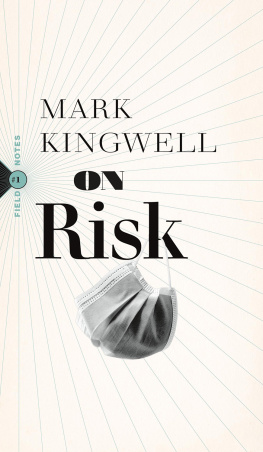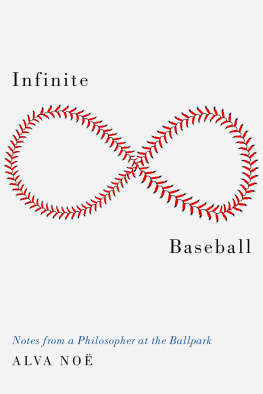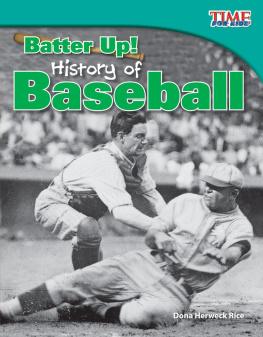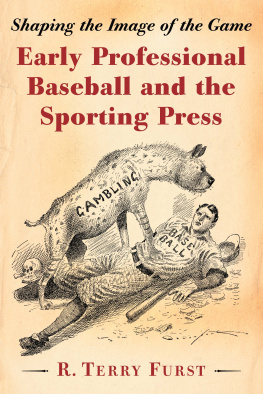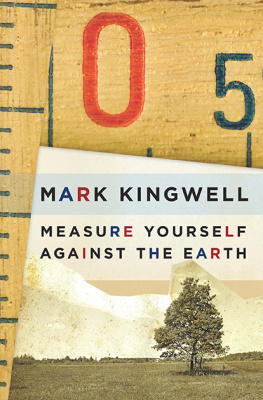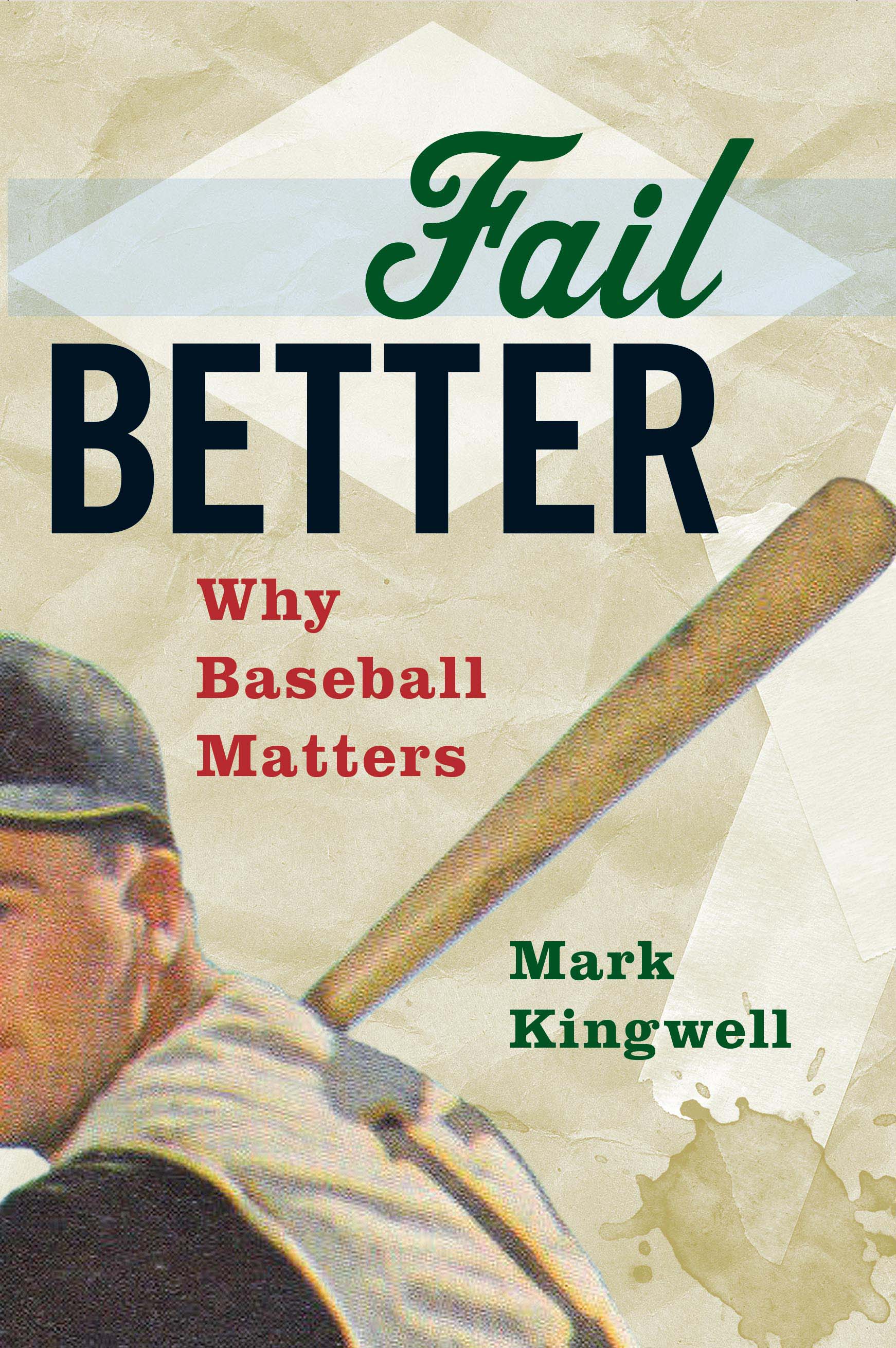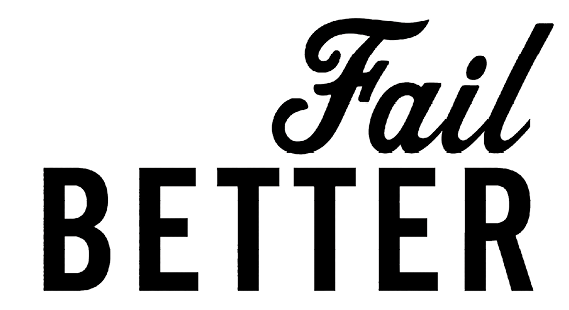FAIL BETTER
Also by Mark Kingwell:
A Civil Tongue: Justice, Dialogue, and the Politics of Pluralism (1995)
Dreams of Millennium: Report from a Culture on the Brink (1997)
Marginalia: A Cultural Reader (1999)
In Pursuit of Happiness: Better Living from Plato to Prozac (2000)
The World We Want: Restoring Citizenship in a Fractured Age (2001)
Practical Judgments: Essays in Culture, Politics, and Interpretation (2002)
Catch and Release: Trout Fishing and the Meaning of Life (2003)
Nothing for Granted: Tales of War, Philosophy, and Why the Right Was
Mostly Wrong: Selected Writings 2000-2003 (2005)
Nearest Thing to Heaven: The Empire State Building and American Dreams (2006)
Classic Cocktails: A Modern Shake (2006)
Concrete Reveries: Consciousness and the City (2008)
The Idlers Glossary (2008)
Opening Gambits: Essays on Art and Philosophy (2008)
Glenn Gould (2009)
The Wage Slaves Glossary (2011)
Unruly Voices: Essays on Democracy, Civility, and the Human Imagination (2012)
Measure Yourself Against the Earth: Essays (2015)
Why Baseball Matters
Mark Kingwell
BIBLIOASIS
WINDSOR, ONTARIO
Copyright Mark Kingwell, 2017
All rights reserved. No part of this publication may be reproduced or transmitted in any form or by any means, electronic or mechanical, including photocopying, recording, or any information storage and retrieval system, without permission in writing from the publisher or a licence from The Canadian Copyright Licensing Agency (Access Copyright). For an Access Copyright licence, visit www.accesscopyright.ca or call toll free to 1-800-893-5777.
FIRST EDITION
Library and Archives Canada Cataloguing in Publication
Kingwell, Mark, 1963-, author
Fail better / Mark Kingwell.
Issued also in electronic format.
ISBN 978-1-77196-153-0 (softcover).--ISBN 978-1-77196-154-7
(ebook)
1. Baseball--Psychological aspects. 2. Failure (Psychology).
I. Title.
GV867.6.K56 2017 796.357019 C2016-907944-9
C2016-907945-7
Edited by Daniel Wells
Copy-edited by Emily Donaldson
Typeset by Chris Andrechek
Cover designed by Gordon Robertson



Published with the generous assistance of the Canada Council for the Arts and the Ontario Arts Council. Biblioasis also acknowledges the support of the Government of Canada through the Canada Book Fund and the Government of Ontario through the Ontario Book Publishing Tax Credit.
For Alison Gordon,
Paul Quarrington, Linda Williams
All of old. Nothing else ever. Ever tried. Ever failed. No matter. Try again. Fail again. Fail better.
Samuel Beckett, W orstward Ho (1983)
Form
This is a book about baseball, and like all baseball books it faces a series of choices that reflect the game itself.
Does it concern statistical analysis? Personal reflection? Cultural investigation? Does it address biography and autobiography? Is it a book of history, elegy, and nostalgia? Is it a meditation on fatherhood, or community, or ethics?
Well, the game is all of these, and more, and the pages that follow reflect my own different kinds of engagement with it. I am not a stats geek, but like any fan I feel in baseball the weird tidal pull of averages and projections. My baseball biography is, in itself, entirely insignificant; but in common with every baseball lover I have ever met, the details of life and circumstance seem constantly refracted through the game, the parks visited and plays witnessed. Not sentimental by nature, I likewise feel the strange power of a gameespecially in its eternally compromised Major League formto raise the hairs on the back of my neck or bring a lump to my throat.
We love baseball, poet Donald Hall says, because it seizes and retains the past, like the snowy village inside a glass paperweight. Hall is the supreme poet of baseball, but is that actually right ? A glass paperweight is not life; and surely, whatever else it is, baseball is part of life. And yet, the image captures an undeniable appeal: baseball, played in the present, always seems somehow to contain, and illuminate, the past. Turn the globe upside down, and the settled snow will fall, and fall again. These little globes are purchased as souvenirs, to contain memories. Theyre already projecting themselves into some future moment when, idly, we will pick up and invert the fluid-filled chamber.
No wonder that the literal snow globe which features so prominently in Orson Welles Citizen Kane (1941), dropped and smashed as Kane utters his immortal Rosebud, has become cinematic shorthand. It means any object or feature that instantly communicates longing, especially frustrated or wistful: the green dock light in The Great Gatsby , the ruby slippers in The Wizard of Oz , the mysterious statuette in The Maltese Falcon . And, of course, the snagged home-run ball in Don DeLillos novella Pafko at the Wall (1992), prelude to the monumental Underworld (1997). The snow globe is thus related to, but distinct from, Alfred Hitchcocks famous MacGuffin: the mysterious object of desire, often unseen, around which the films action revolves. The snow globe is more personal, and particular; it contains a world.
I think a different metaphor is more apt. Baseball is a scrapbook, idiosyncratic and at times personal, elsewhere as theoretical and abstract as the most arcane rule on the official books. Players speak of chopping up the game after its over, considering blown plays and bad pitchesalso remarkable homers and clever gap singleswith the relative calm of clubhouse hindsight. One American player I know, who played in a minor league in Japan, said the hardest thing about doing so was not having a chance to chew over the games afterward. How else can we slow the game down , stretching the blurring realities of lived game-time into reflection? Players, unlike television fans, do not enjoy the luxury of instant replay and simultaneous commentary.
There is slow, and there is slower. Writing about baseball, like writing about life, is an always-failed attempt to slow down the flow of consciousness, to capture itsome of itin discourse. If Proust and Woolf could not do it completely, if Ian McEwan spent a whole novel relating one mans single Saturday and Nicholson Baker expanded the thoughts of a shopping-mall escalator ride into another volume, who can hope to seize, in words, even one baseball game, let alone baseball as such? And yet, the diamonds play of equal and opposite forces, baseballs feeling of pent energy, forever calls to us for reflection. My friend, the writer Lauren Oliver, put it this way on one opening day not long ago: Baseballits like the art film of sport: no plot, anti-climactic, beauty in slow-motion and repetition, and the sounds of wood cracking and leather hitting leather.
Slow the game down . In what follows, I will relay facts and indulge narrative impulses, analyze the game and the desires it prompts in us. It is axiomatic in baseball writing that the game is both itself and more than itself. Again, true enough. But baseball is not everything: it does not explain the universe, demystify human consciousness, or settle the relation between the two. Nevertheless, the abiding theme of these reflectionsthe importance of failure and error to human self-understandingrecurs and mutates across these pages precisely because of baseballs ability, however indirect, to aid philosophical heavy lifting. In particular, there is no better tutor of human failures enduring significance than this strange, crooked game of base.



